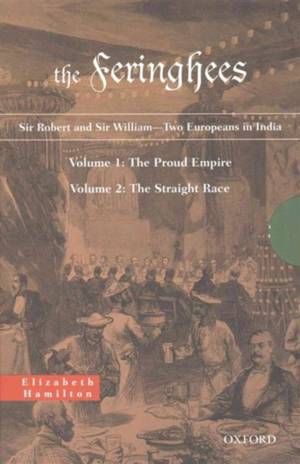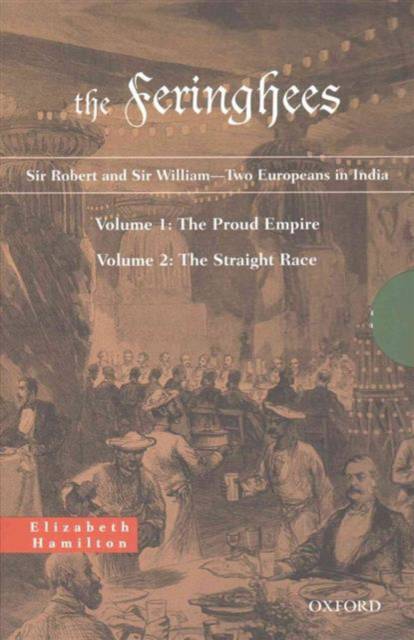
- Afhalen na 1 uur in een winkel met voorraad
- Gratis thuislevering in België vanaf € 30
- Ruim aanbod met 7 miljoen producten
- Afhalen na 1 uur in een winkel met voorraad
- Gratis thuislevering in België vanaf € 30
- Ruim aanbod met 7 miljoen producten
Zoeken
€ 174,95
+ 349 punten
Omschrijving
The stiff upper lip. Steely eyes. A cold heart. This has been the picture of the English imperialist carried through the ages in popular imagination. Elizabeth Hamilton brings forth an alternative portrayal in her book, The Feringhees. Of a quiet people, dedicated to upholding the tradition of dispensing justice, avoiding corruption and conflict. Drawn from a multiplicity of sources- memoirs, commentaries, original manuscripts and family letters, it illustrates the lives of two British men who worked in the Indian Civil and Political Services, replete with descriptions of the social and cultural life as well as political particulars of the time. Sir Robert Hamilton during the rebellion of 1857, and Sir William Barton in the first part of the twentieth century as the movement for independence gained momentum. Their careers are set alongside the crucial events of their times, forming a lively and readable account of a world that no longer exists, a world now accessible only through fading photographs and yellowing pages. Volume 1: The Proud Empire The Proud Empire traces the life of Sir Robert Hamilton, from when he starts his career under the watchful eye of his ICS father, up till his retirement, wherein he returns to England.This exploration opens up windows into the political climate that pervaded large parts of India during the mid 19th century, particularly in the Central Provinces. Occupying multiple roles such as the Resident of Indore, Agent to the Governor General in the Central Provinces, Political Adviser he is seen interacting with various prominent figures of the independence movement like the Rani of Jhansi, Tantya Tope and Nana Sahib. The picture of the arrogant imperialist fades away to be replaced by someone keen to make a difeerence to the society he was working in.who attempts to encourage good governance, mends ties in the midst of escalating tension, and must recover cities occupied by insurgents, all the while shadowed by the burden of great personal losses. Volume 2 The Straight Race The Straight Race moves into the early part of the twentieth century. Sir William Bartonas career took him down paths as varied a the vast land that the British were ruling. Starting in the Punjab and later moving to the North-West Frontier, he learnt to respect the Pathans, a hardy tribe persisting in the remote mountainous districts at the end of the Third Afghan War in the harsh region of Waziristan beset by frequent violence. In contrast he served as Resident in the well administered States of Mysore and Hyderabad, where he stood up to the Nizam, doing his best to set the administration on a less corrupt footing. Retirement did not deter Sir Williamas close interest in Indian affairs. He returned twice on tour as adviser to electrical companies, and travelled out during the Second World War with a Ministry of Supply Mission. With three books and many articles for newspapers and journals on the subject, India remained an integral part of his life.
Specificaties
Betrokkenen
- Auteur(s):
- Uitgeverij:
Inhoud
- Aantal bladzijden:
- 554
- Taal:
- Engels
Eigenschappen
- Productcode (EAN):
- 9780199457465
- Verschijningsdatum:
- 1/05/2016
- Uitvoering:
- Boek
- Afmetingen:
- 145 mm x 218 mm
- Gewicht:
- 657 g

Alleen bij Standaard Boekhandel
+ 349 punten op je klantenkaart van Standaard Boekhandel
Beoordelingen
We publiceren alleen reviews die voldoen aan de voorwaarden voor reviews. Bekijk onze voorwaarden voor reviews.











